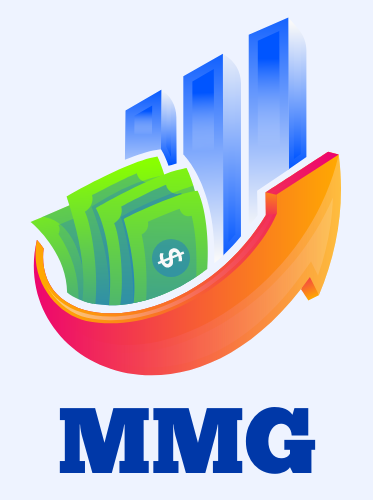In the modern era, where every facet of our existence seamlessly merges with the digital world, the workplace is no exception. Every career, rooted in the arts or the sciences, is immensely enriched by the infusion of digital expertise. Possessing a digital presence goes beyond mere existence online; it’s about harnessing and optimizing that presence to its full potential.
A solid foundation in digital skills augments one’s adaptability and versatility in one’s chosen profession and paves the way for many newfound opportunities. As organizations globally embrace digital solutions, navigating this intricate digital terrain becomes indispensable. Whether mastering seamless communication on diverse virtual platforms or sifting through intricate data for sharper, informed decisions, digital acumen has transcended the realms of being a mere add-on, firmly establishing itself as an essential. With technology’s relentless march forward, regularly updating one’s digital arsenal is the key to ensuring a formidable edge in any professional arena. The overarching impact of digital evolution underscores that integrating digital skills is no longer a luxury but a prerequisite for flourishing in any career path.
1. Digital Communication
In today’s fast-paced environment, effective and efficient communication is crucial. And with teams often spread across the globe, digital platforms have become the cornerstone of business interactions.

- Platforms Galore: Be it emails that convey formal announcements or tools like Slack and MS Teams that facilitate team discussions, knowing how to use them is pivotal.
- Virtual Etiquette: Just as there’s a code of conduct in physical meetings, virtual interactions have their own unsaid rules. Ensuring clear, concise communication and respecting time zones are just some of this etiquette’s elements.
2. Digital Content Creation
Content isn’t just the king; it’s the entire kingdom. Quality content can set one apart in a world where every brand and individual tries to make their mark.
- Written Content: Crafting compelling articles, blogs, or even social media posts requires a knack for writing tailored to the digital audience.
- Visual Content: With the boom in video platforms and the importance of visual aesthetics, video production, and graphic design skills can give one a competitive edge.
3. Social Media Management

Social media isn’t just for sharing vacation photos anymore. It’s a potent tool for brand building, networking, and even customer service.
- Relevance: From LinkedIn for professional connections to Instagram for brand visibility, understanding the nuances of each platform is essential.
- Branding and Engagement: It’s one thing to have a profile; it’s another to maintain consistent branding and engage meaningfully with one’s audience.
4. Data Analysis and Interpretation
Numbers don’t lie; they tell compelling stories in the digital realm.
- Role of Data: With every click and scroll, data is generated. Harnessing this data can lead to informed business decisions.
- Analytical Tools: Platforms like Google Analytics provide insights into user behaviour, but it’s essential to interpret this data contextually.
5. Basic Coding and Web Development
The digital age’s backbone, understanding even the basics of coding, can be a significant asset.
- Digital Infrastructure: Every website or app we use is built on code. Having a rudimentary understanding can aid in better utilization or even customization.
- Beyond Tech Roles: Even if one isn’t in a tech-specific role, understanding web development can aid in better communication with technical teams or even in personal projects.
6. Digital Marketing Fundamentals
Marketing has evolved, with digital channels offering precise targeting and measurable results.
- Traditional vs. Digital: While traditional methods have their place, digital channels offer scalability and precise targeting.
- SEO and SEM: The art of making one’s digital presence visible through search engines, either organically (SEO) or through paid ads (SEM), is invaluable.
7. Cloud Computing and File Management
The age of bulky file cabinets is over. Cloud platforms have revolutionized how we store and share information.
- Popular Platforms: Tools like Google Drive and Dropbox allow for real-time collaboration and easy access from any device.
- Efficient Management: Knowing how to categorize, store, and share files can drastically increase productivity and streamline workflows.
8. Digital Project Management
Managing projects digitally allows for real-time updates, clear delegation, and efficient workflows.
- The Digital Shift: Physical whiteboards have been replaced by tools like Trello or Asana, which offer real-time tracking.
- Virtual Teams: With teams often spread out, these tools allow for clear delegation, timelines, and progress tracking.
9. Cybersecurity Basics
As our reliance on the digital realm grows, so does the importance of protecting our virtual territories.
- Rising Importance: With increasing incidents of data breaches, basic knowledge of cybersecurity can be the difference between safety and vulnerability.
- Safe Practices: From strong passwords to recognizing phishing attempts, these practices ensure our digital well-being.
Conclusion
The digital age isn’t on the horizon; it’s here, unfolding in full force and reshaping the very fabric of our professional and personal lives. Irrespective of one’s career choice—whether in healthcare, finance, arts, or any other sector—these digital skills play a pivotal role in magnifying proficiency and unveiling unprecedented avenues of opportunity. They serve as the bridge, connecting traditional know-how with contemporary demands.
As the lines between the physical and digital realms become increasingly intertwined, the emphasis isn’t just on existing within this landscape but thriving in it. This calls for an unwavering commitment to continuous learning, adaptability, and a keen foresight to anticipate the shifts before they manifest. In this era, where change is the only constant, digital skills are the compass that ensures one remains relevant and ahead of the curve, ready to seize the many opportunities this digital revolution brings to the fore.
(FAQs) on Digital Skills
Q1: Why are digital skills necessary in today’s job market?
- Answer: Digital skills are essential in today’s job market because they reflect an individual’s ability to navigate, contribute to, and thrive in an increasingly digital-centric world. Whether it’s communication, marketing, or data management, digital prowess enhances efficiency and effectiveness and opens doors to many opportunities.
Q2: Are digital skills only relevant for tech-related jobs?
- Answer: No, digital skills are transferable and beneficial across all sectors and roles. From healthcare to hospitality, the digital revolution has touched every industry, making these skills universally relevant and highly sought-after.
Q3: How can one improve their digital literacy and proficiency?
- Answer: Improving digital literacy involves a mix of formal education, online courses, practical experience, and staying updated with the latest digital trends and tools. Platforms like Coursera, Udemy, and LinkedIn Learning offer a range of courses on various digital topics.
Q4: Is basic coding essential for all professionals?
- Answer: While not essential for all professionals, basic coding knowledge provides a foundational understanding of the digital realm, facilitates better communication with tech teams, and can be a valuable addition to one’s skillset.
Q5: How does digital project management differ from traditional methods?
- Answer: Digital project management tools offer real-time collaboration, instant updates, and integration capabilities with other digital tools and allow for a more streamlined, transparent process, especially when handling remote teams or multiple stakeholders.
Q6: With the rise of AI and automation, will digital skills remain relevant?
- Answer: Absolutely. While AI and automation will take over certain tasks, the human touch, creativity, strategy, and understanding of these digital tools will remain irreplaceable. Digital skills will evolve, not diminish, with technological advancements.
Q7: How often should one update their digital skills?
- Answer: The digital landscape is dynamic, with new tools, platforms, and trends emerging constantly. Learning regularly through workshops, courses, or webinars and staying updated with industry news is advisable to ensure one’s skills remain current and competitive.
Q8: Are cybersecurity practices only for IT professionals?
- Answer: No, cybersecurity practices are essential for everyone who interacts with the digital world, be it through emails, browsing, online transactions, or social media. Protecting oneself from potential threats is a universal necessity.
Q9: Can digital skills be included in a resume or CV?
- Answer: Definitely! Highlighting digital skills showcases adaptability, proficiency in modern tools, and a commitment to staying updated. They can be a significant differentiator in the job market, setting one apart from other candidates.
Q10: How do social media management skills benefit professions outside of marketing?
- Answer: Social media is a powerful networking, research, and personal branding tool. For professionals, irrespective of their domain, it offers a platform to connect with peers, stay updated with industry news, share expertise, and establish an online presence.

I absolutely love your blog and find the majority of your
post’s to be just what I’m looking for. Would you offer guest writers
to write content for you personally? I wouldn’t mind publishing
a post or elaborating on some of the subjects you write regarding here.
Again, awesome blog!
Thanks for another great post. The place else may anybody get that kind of information in such a perfect manner of writing?
I have a presentation next week, and I’m on the look for such
information.
Hi there this is kinda of off topic but I was wanting to know if blogs use
WYSIWYG editors or if you have to manually code with
HTML. I’m starting a blog soon but have no coding know-how so I wanted to get guidance from someone with
experience. Any help would be enormously appreciated!
I really like your blog.. very nice colors & theme.
Did you make this website yourself or did you hire someone to do it for you?
Plz respond as I’m looking to create my own blog and would like to
find out where u got this from. cheers